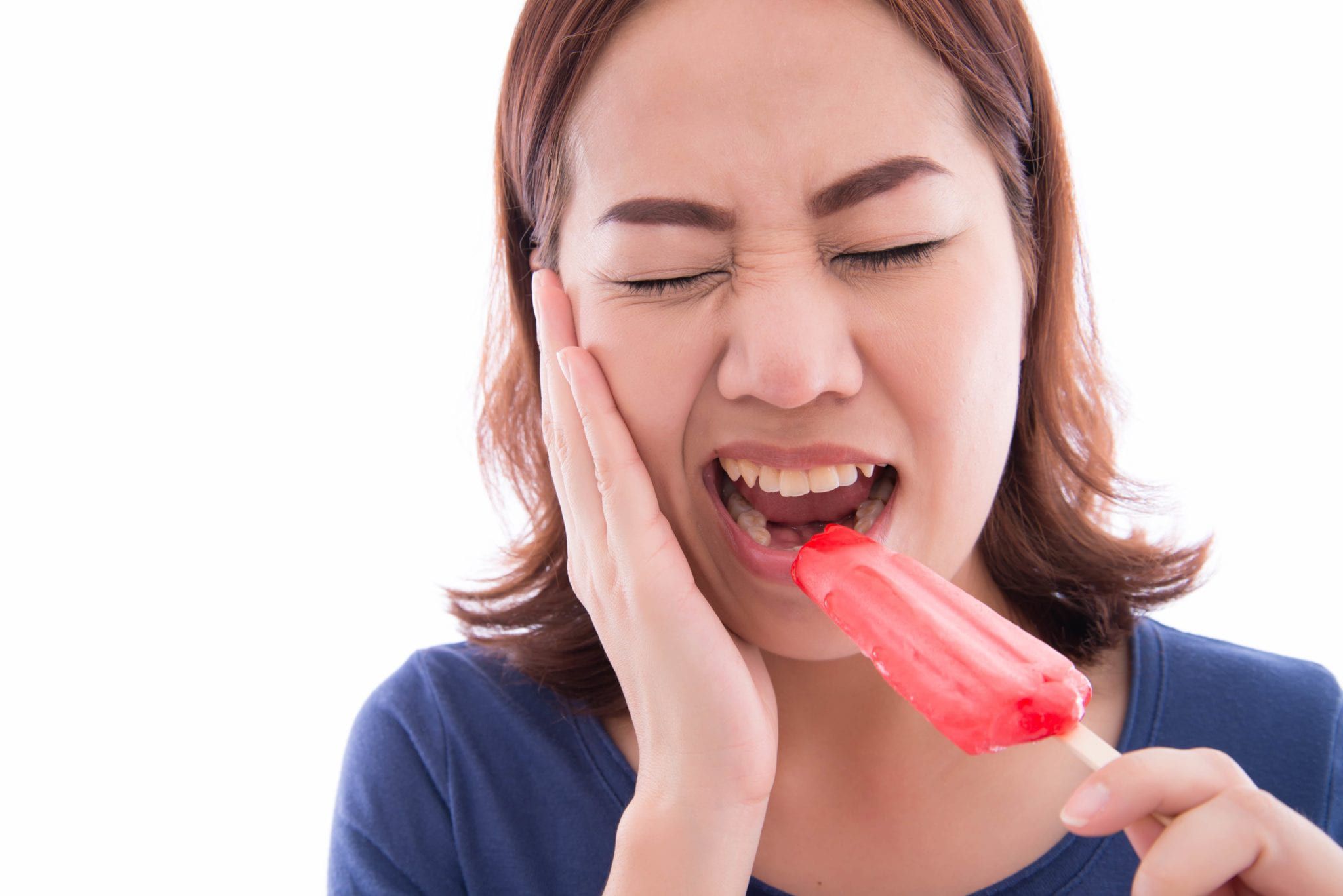What is Tooth Sensitivity?
Tooth sensitivity, also known as “sensitive teeth” among the people, is often neglected because it is a problem that is considered “what does not kills you makes you stronger”.
Tooth sensitivity, which is very common nowadays, is tried to be eliminated with toothpaste and mouth rinses since it is ignored at the beginning. Since the factor is not eliminated, its course worsens over time and starts to seriously disturb our quality of life.
Is There a Solution for Tooth Sensitivity?
Since tooth sensitivity is perceived as mild to moderate pain, it is a dental problem that is often put on the back burner. Patients prefer to ignore the problem by producing simple solutions such as limiting the consumption of cold drinks or not consuming citrus juice. When the condition progresses a little, they try to solve the problem with desensitizing pastes or mouthwashes.
However, unless the causative agent is eliminated, the disease will continue to progress and worsen. In some cases, even breathing through the mouth triggers sensitivity. As with any disease, early intervention in tooth sensitivity is much simpler and savior.
Are Tooth Sensitivity Pastes Effective?
Since it is an easily accessible and known method, patients often resort to desensitizing toothpastes. Although these pastes are partially successful in relieving sensitivity temporarily, the process continues to progress as they do not treat the main factor that causes sensitivity. Patients modify their eating habits by avoiding sour or cold drinks and foods. However, ignoring this situation makes the sensitivity problem even more complicated.
Is There a Permanent Solution to Sensitive Teeth?
There are many factors that cause tooth sensitivity, as well as various treatment methods that can eliminate these factors. Therefore, finding the mechanism that causes sensitivity is actually the key to treatment.
We can list the factors that form the basis of this cycle, which works differently in each patient, and specific treatments as follows:
What Causes Tooth Sensitivity?
- Teeth clenching and grinding cause abrasion and cracks, especially in the neck area of the tooth, leading to the development of tooth sensitivity. Moreover, in some severe cases of clenching, sudden pain that increases with chewing can be observed even in sound teeth without decay. Teeth clenching and grinding can be controlled with botulinum toxin and night plaque applications. In this way, the progression of the abrasions on the teeth can be stopped and the sensitivity can be eliminated by restoring the existing material losses. If the openings in the neck area of the teeth are mild, treatment can be provided using dental lasers and desensitizing agents. For large and deep openings, “adhesive bonding applications” or “coil fillings” can be protective and therapeutic.
- Some of the patients with sensitivity problems brush with a hard brush or by pressing because they think that they clean and whiten their teeth better. Traumatic brushing, that is, brushing with a hard brush or by pressing too hard, causes abrasion on the tooth surface and creates sensitivity in the teeth. It should not be forgotten that this type of brushing scratches the tooth surface and also causes the teeth to look more yellow. In recent studies, aesthetic dental treatments applied after the abrasions are restored have been found to be highly motivating for these patients to stop traumatic brushing. We recommend you to read our oral hygiene training link for correct brushing techniques.
- Acidic beverages or stomach acid that reaches the oral environment with reflux cause erosion of dental tissue and sensitivity in the teeth. It is important to minimize the consumption of such beverages and to treat and control reflux.
- Fractures and cracks due to sudden traumas cause sensitivity. Teeth with severe sensitivity problems usually have deep abrasions, cracks or fillings. In such cases, desensitizing fillings (glass ionomer fillings) containing fluorine and nourishing tooth tissue can be applied and healing can be followed. In some rare cases where the sensitivity does not go away, permanent relief can also be achieved by performing root canal treatment to eliminate the neural stimulus in the tooth.




